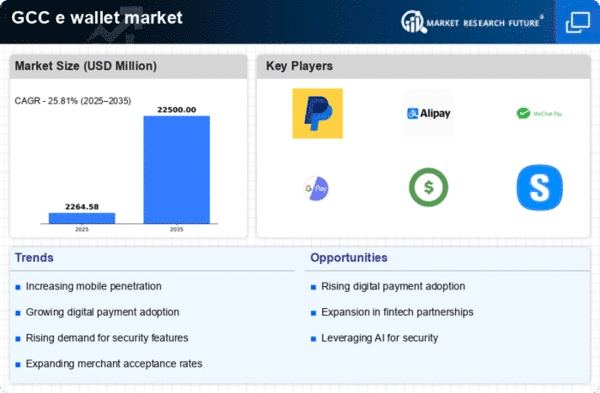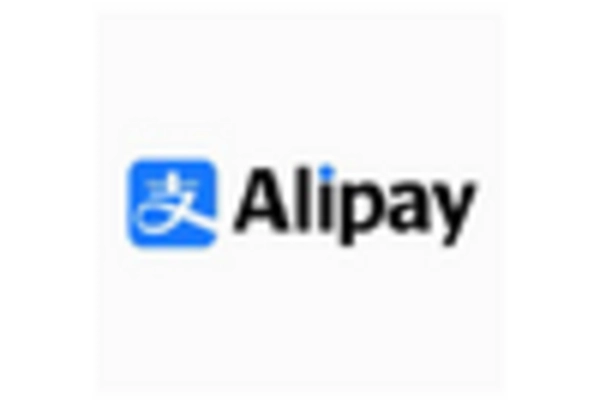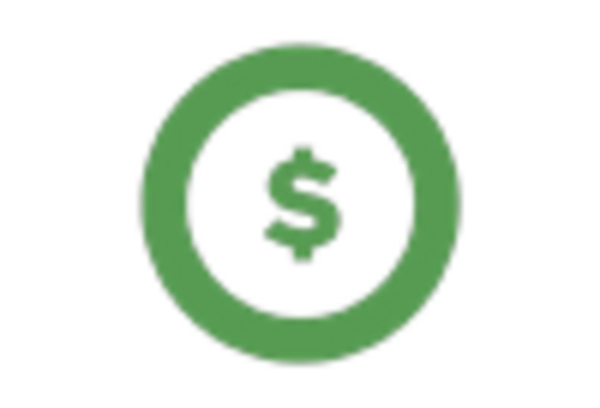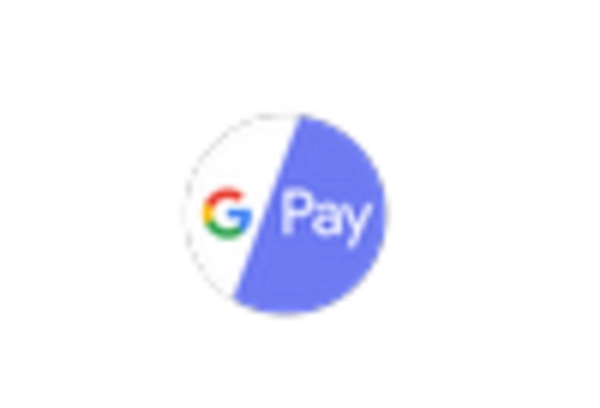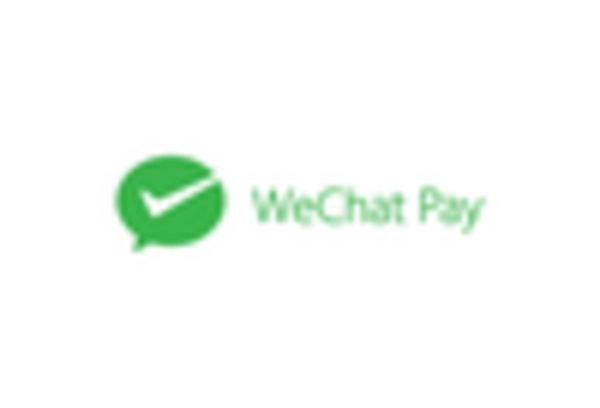Growing E-commerce Sector
The rapid expansion of the e-commerce sector in the GCC region is significantly influencing the e wallet market. As online shopping continues to gain traction, consumers are increasingly seeking convenient and secure payment methods. Data suggests that e-commerce sales in the GCC are projected to reach $28 billion by 2026, with a substantial portion of these transactions likely to be conducted via e wallets. This shift towards digital payments is driven by the desire for seamless transaction experiences, which e wallets can provide. Consequently, the e wallet market is expected to benefit from the increasing integration of e wallet options within e-commerce platforms, enhancing overall consumer engagement.
Rising Smartphone Penetration
The proliferation of smartphones in the GCC region appears to be a pivotal driver for the e wallet market. As of 2025, smartphone penetration in the GCC is estimated to exceed 90%, facilitating easier access to digital payment solutions. This trend indicates that consumers are increasingly inclined to utilize mobile applications for transactions, thereby enhancing the adoption of e wallets. The convenience offered by smartphones, combined with the growing number of applications supporting e wallet functionalities, suggests a robust growth trajectory for the e wallet market. Furthermore, the integration of advanced features such as biometric authentication and user-friendly interfaces may further entice consumers to transition from traditional payment methods to digital wallets.
Government Initiatives and Regulations
Government policies in the GCC region are likely to play a crucial role in shaping the e wallet market. Initiatives aimed at promoting cashless economies, such as the UAE's Vision 2021 and Saudi Arabia's Vision 2030, indicate a strong commitment to digital transformation. These strategies often include regulatory frameworks that support the development and adoption of e wallets. For instance, the Central Bank of the UAE has introduced guidelines to enhance the security and efficiency of digital payment systems. Such regulatory support not only fosters consumer trust but also encourages financial institutions to innovate and invest in e wallet technologies, thereby propelling the e wallet market forward.
Increased Focus on Financial Inclusion
Financial inclusion initiatives in the GCC region are emerging as a significant driver for the e wallet market. Governments and financial institutions are actively working to provide unbanked and underbanked populations with access to digital financial services. E wallets offer a viable solution for individuals who may lack traditional banking facilities, enabling them to participate in the digital economy. As of 2025, it is estimated that around 20% of the population in certain GCC countries remains unbanked. By promoting e wallets as a means of financial access, stakeholders are likely to stimulate growth in the e wallet market, fostering a more inclusive financial landscape.
Consumer Preference for Digital Transactions
The evolving consumer behavior in the GCC region indicates a marked preference for digital transactions, which is likely to bolster the e wallet market. As consumers become more accustomed to online and mobile payments, the demand for efficient and secure payment solutions is increasing. Surveys suggest that over 70% of consumers in the GCC express a preference for digital payment methods over cash. This shift in consumer sentiment is further supported by the growing awareness of the benefits associated with e wallets, such as speed, convenience, and enhanced security features. Consequently, the e wallet market is poised for growth as businesses adapt to meet the changing preferences of their customers.


